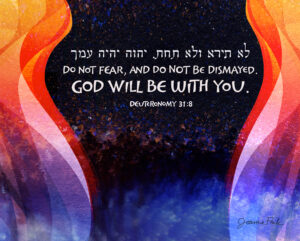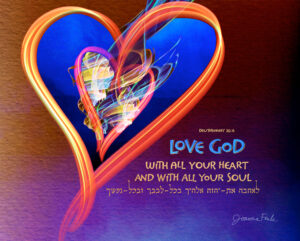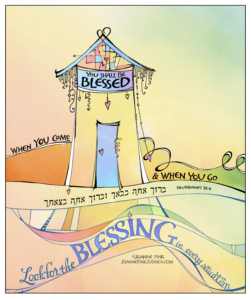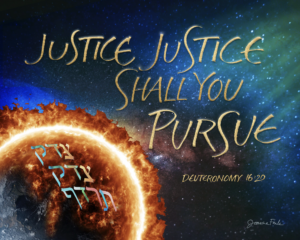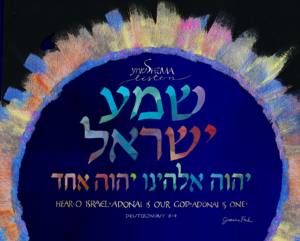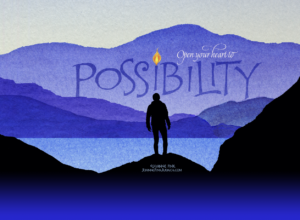This week, as we read Parashat Vayelech and observe Shabbat Shuva—the Shabbat of Return—we are reminded of God’s abiding presence during the Ten Days of Awe. I’m sharing a new prayer, You Are Not Alone, along with a responsive reading, May I Find Forgiveness. May these words bring comfort, hope, and inspiration as we prepare for Yom Kippur.
Journaling Prompts
Standing at the Precipice of the New Year
As we prepare to welcome 5786, Parashat Nitzavim invites us to pause at the threshold of a new year. In this week’s blog, I share my Torah illumination of Deuteronomy 30:6, my prayer At the Precipice, journaling prompts for reflection, and a closing blessing for a sweet and meaningful year ahead.
Looking for Blessings
Parashat Ki Tavo teaches that every threshold holds spiritual possibility. Explore blessings in your own comings and goings with a prayer, journaling prompts, and creative resources.
Justice, Justice Shall You Pursue
This week’s Torah portion, Shoftim, opens with the command “Tzedek, tzedek tirdof — Justice, justice shall you pursue” (Deut. 16:20). In the Torah, when a word appears twice, we are taught to pay special attention. The doubling of “justice” reminds us that pursuing justice is not optional, but central to who we are. As Elul begins, Shoftim calls us to reflect inwardly and act outwardly — using our unique gifts to help create a more inclusive, compassionate, and just world.
Interwoven Harmonies
This blog post explores the spiritual themes of Parashat Va’etchanan, including the Shema, listening as a sacred act, and the power of poetry and prayer. It introduces the original prayer Interwoven Harmonies and reflects on Shabbat Nachamu and Tu B’Av. The post also invites readers to the launch of ZenScribe a platform for Jewish professionals to customize lifecycle certificates and other Jewish graphics.
Finding Our Way Back: A Journey of Alignment and Intention
As we begin the Book of Devarim and approach Tisha B’Av, we’re invited to reflect on the words that shape our stories and the values that guide our return. This week’s blog features a prayer for alignment, a Torah illustration inspired by Deuteronomy 1:1, journaling prompts for intentional living, and an invitation to join our Elul Explorations: Five Gates of Growth.

